At OCTOPROCURE, our Onsite training programmes are designed to deliver techniques and models that have proven effective, and are applicable and reliable for use in the real world scenarios. We have one of the best state-of-the-facility and tools to accommodate our trainees. Our trainers have relevant international certifications with well-matched and in-depth experiences to deliver expected outcomes to our clients.
Also, with our onsite training programmes, we present our clients with the option to request training to be delivered at their office or preferred agreeable location.
We specialise in the provision of Soft Skills and Technical Trainings to our clients and our training services are aimed to improve and strengthen overall business processes, strategies, competencies, performance outputs and to develop the Global human capacity.
Soft Skills
We provide unique business training programmes which are designed to deliver techniques and models that have proven effective and reliable for use in the real world scenarios.
Our Soft Skills Courses include:
Business Development in the Oil & Gas Industry Negotiation Skills for the Oil & Gas Industry Performance Management & Appraisal Contract Strategy & Management
Business Development in the Oil & Gas Industry

The Business Development training we provide at OCTOPROCURE will expose you to great business ideas and strategies that aimed at improving company revenue goal for your organisation.
This course is taught by experienced business development professionals in the industry, who have hands-on years of experience in the Oil and Gas industry and also, who have been business consultants to major Oil and Gas firms in the country and beyond.
- Who should attend this training?
This course is designed for:
-
- Business Development Officers
- Business Development Managers
- Others: Ambitious individuals with demands for business development skills and management goals
- Training Outcomes
Upon completion of this training, the trainee will be able to:
-
- enhance revenue generation goals for his/her organisation
- deliver high impact presentations and successful business communications while engaging clients
- realise company set targets through sales process and team management
- understand the commercial frameworks that are obtainable in different segments of the industry
- get insights into the global drivers of the oil industry
- develop a personalised strategy that is effective for higher performance upon your resumption to work
- Course Objectives
The following objectives are to be achieved by the trainee at the end of this training:
-
- to create business opportunities that will improve revenue generation goal for your company
- to develop trainee with the business skills required to perform as a business development professional
- appropriate Tendering processes and bidding for contract in the industry
- to broaden trainee knowledge on Global local content
- Course Outline
The following course modules shall be covered by trainee:
Day 1
- Introduction
- Oil and Gas operations overview
- Global drivers and players
- Doing business in the Global oil industry- competitive analysis frameworks
- High impact sales presentations
- Business strategy and creative execution
Day 2
- Essential Business Skills for Business Development Professionals
- Communication skills
- Listening skills
- Negotiation Skills
- Client relationship management
- Market/Client Segmentation
- Segmenting the clients in the industry
- Attracting the ‘right’ clients
- How to identify the clients whom will increase your bottom line
Day 3
- Tender and Contracting Processes
- Tender and Contracting processes in the Global oil industry
- Local Content – Considerations for successful Business Development
- Clients’ Engagement Methods
- Opportunities in the Oil industry
- Design of Business model that is peculiar to individual companies
- Training Benefits
At the end of this training, the trainee and his/her company shall benefit in the following ways:
-
- Improved revenue generation goal
- Enhanced business growth
- Strong professional network
- Strengthened business relationships
- Sharpened leadership skills
- Broadened competencies in the Oil and Gas Market
- Expanded knowledge of the global Oil and Gas business environment
- Course Details
- Course Duration: 3 days
- Course Location: To be announced
- Course Date: To be announced
- Training Language : English
Negotiation Skills for the Oil & Gas Industry
Our Negotiation to Win-Win training programme is designed to help you develop essential business skills and equip you with the ability to apply them during business engagements with clients, especially business engagements that require prompt decision-making.
- Who should attend this training?
This course is designed for:
-
- Business Development Managers
- Negotiators and Contracting Professionals
- Corporate Planning Professionals
- Legal, Environmental, Banking, Insurance, Finance Professionals and tax advisors
- Geologists, Geophysicist, Petroleum Engineers seeking understanding of different fiscal regimes in commercial contracts
- Supply Planners & Scheduling Professionals
- Government Regulators
- Auditing Personnel
- Compliance Officer
- Equity Analyst and Bankers
- Commercial Managers
- Joint Venture Officers

- Training Outcomes
Upon completion of this training, the trainee will be able to:
-
- Discover tools and techniques for resolving conflict and obstacles to success
- Identify the various negotiation styles and how to engage them effectively
- Understand key commercial drivers of the international oil & gas industry
- Explore the factors of critical impact within oil and gas negotiations
- Develop a robust framework for negotiation preparation
- Appreciate the changing role of key stakeholders in the industry and the impact on commercial negotiations
- Deal with organisational and cultural dimensions
- Learn best practice approaches for team and multilateral negotiations
- Course Objectives
The following objectives are to be achieved by the trainee at the end of this training:
-
- Enhance your understanding of the fundaments of the Oil and Gas law, and the commercial contracts
- Evaluate the technical, commercial, and financial aspects of Oil & Gas contracts and their impact on the profitability
- Confidently discuss technical business terms and concepts while engaging your clients
- Master the negotiations skills, lead and influence business agreements towards successful contract
- Course Outline
The following course modules shall be covered by trainee:
Day 1
-
- Introduction to Negotiation Skill
- Principles of Negotiation
- Stages of Negotiation
Day 2
-
- Developing the language of negotiation
- The non-verbal you
- Handling Objections and Difficult Situations
- Making it happen – Action Planning for Results.
- Training Benefits
At the end of this training, the trainee and his/her company shall benefit in the following ways:
-
- improve your ability to select & execute the most appropriate negotiation strategy for every business engagements and deals
- enhance your ability to identify the key elements of corporate negotiation strategy & processes that are required to support world class commercial negotiation
- effectively structure & manage negotiation teams
- ability to use different negotiation tactics and techniques
- prepare you to negotiate effectively for both complex and simple negotiations
- Course Details
- Course Duration: 2 days
- Course Location: To be announced
- Course Date: To be announced
- Training Language Delivery: English
- Terms and Conditions
General Terms and Conditions apply.
Performance Management & Appraisal
Our P erformance Management and Appraisals training will help participant create and develop tools that ensure that managers conduct performance appraisals effectively. Our training includes design of appraisal process, how to use appraisal tools, training managers on how to provide feedback and set performance goals while adhering to legal guidelines, distributing resources including instructions and monitoring the whole process. Our comprehensive performance appraisal training will enable your organisation to validate that employees have the right skills and knowledge to complete job tasks and produce quality products and services.
erformance Management and Appraisals training will help participant create and develop tools that ensure that managers conduct performance appraisals effectively. Our training includes design of appraisal process, how to use appraisal tools, training managers on how to provide feedback and set performance goals while adhering to legal guidelines, distributing resources including instructions and monitoring the whole process. Our comprehensive performance appraisal training will enable your organisation to validate that employees have the right skills and knowledge to complete job tasks and produce quality products and services.
This course supports the establishment and management of business performance culture, and also create the right competencies and behaviours for all the roles in your organisation. Through the knowledge of individual performance appraisals, which you will acquire at OCTOPROCURE, you will be able to manage the performance of each employee in your organisation.
- Who should attend this training?
This course is designed for:
-
- Departmental Heads and Managers
- HR practitioners
- Newly appointed supervisors
- Staff appraisal Professionals
- Training Outcomes
Upon completion of this training, the trainee will be able to:
-
- Increase team and individual productivity
- Gain better understanding of her team members
- raise awareness of the process and principles of performance management/appraisal in your organisation
- identify the negative aspects of appraisal systems and consider how these might be overcome
- familiarise senior managers with the appeal process relating specifically to the employee’s performance review
- Course Outline
The course will cover the following areas:
Day 1
-
- The purpose of performance review/appraisal within a performance management context
- Practical exercises in the definition and setting of SMART objectives, goals and targets
- Reviewing performance and dealing with underperformance
Day 2
-
- Personal and career development planning
- Giving and receiving feedback
- Conducting the appraisal meeting
- Coaching in the essential skills of appraisal
- Course Objectives
The following objectives are to be achieved by the trainee at the end of this training:
-
- Identification of strengths and areas of improvement as a Manager, Supervisor and Team Leader, setting achievable goals and expectations
- Planning for the right strategy and execution of the Performance Appraisal Plan productively
- Techniques and strategies for communicating effectively with staff, in order to foster ownership, commitment, and to achieve a win-win result for the employee and organisation
- How to delegate and empower effectively
- How to Create plan of action for continuous future improvement
- Training Benefits
At the end of this training, the trainee and his/her company shall benefit in the following ways:
-
- The company goals and strategy are better communicated, understood, and accepted and achieved
- Efforts are aligned in the direction of the achievement of the strategic goals
- improved employee performance
- aids management in decision-making processes associated with promotion, discipline and salary administration activities
- aids management in decision-making processes associated with promotion, discipline and salary administration activities
- Course Details
- Course Duration: 2 days
- Course Location: To be announced
- Course Date: To be announced
- Training Language: English
- Terms and Conditions
General Terms and Conditions apply.
Contract Strategy & Management

The Contract Strategy and Management Training we provide at OCTOPROCURE will equip you with the necessary practical skills to manage and administrate contracts for products and services.
- Who should attend this training?
This course is designed for:
-
- Contract administrators
- Subcontractors
- Procurement Officers/Managers
- Project Managers
- Quality Assurance Personnel
- Senior Management Personnel
- Engineers
- Para-legal Professionals
- Training Outcomes
Upon completion of this training, the trainee will be able to:
-
- Understand the basic law of contract in American
- Understand contract management terminology
- Plan, draft and organise contracts management processes
- Define the scope of work, process, agreement and management philosophy
- Direct and control the contract administration
- Negotiate contracts and terms
- Evaluate, negotiate and enforce service level agreements
- Re-negotiate and terminate contracts.
- Course Objectives
The following objectives are to be achieved by the trainee at the end of this training:
-
- to set performance indicators for your organisation
- to improve contract drafting, amending and adapting standard forms where appropriate
- to explain the concept of strategic management
- to address performance management issues in contracts management
- to formulate strategies for achieving vision, mission and objectives of your organisation
- to understand professional services and term works contracts
- to revise and improve contract administration processes
- Course Outline
The following course modules shall be covered by trainee:
Day 1
- Introduction to Contract Management I
-
- Understanding the Global legal system
- Requirements of a valid contract offer and acceptance
- Drafting of Contract Agreements such as MOAs, MOUs, among others
Day 2
- Introduction to Contract Management II
-
- Capacity and authority of Contract
- Warranties, guarantees and indemnities
- Termination of the agreement
Day 3
- Contract Management
-
- Project Management
- Outsourcing
- Contract management terminology
- Processes prior to award of contract
Day 4
- Contract Management
-
- Contract award and negotiation skills
- Contract administration and control
- Managing service level agreements
- Pre-contractual planning and best practices
- Training Benefits
At the end of this training, the trainee and his/her company shall benefit in the following ways:
-
- Gain an understanding of the contract life cycle, subcontracting, outsourcing, developing strategic alliances, negotiation, financial analysis, and implementation.
- Explore the components and processes of commercial and government contracting.
- Expand awareness of the legal, risk, and ethical issues related to contracting and procurement.
- Understand and explain the foundational competencies and subject matter competencies of the National Contract Management Association’s (NCMA) Contract Management Body of Knowledge (CMBOK), Edition.
- Course Details
- Course Duration: 4 days
- Course Location: To be announced
- Course Date: To be announced
- Training Language: English
- Terms and Conditions
General Terms and Conditions apply.
Technical Trainings
At OCTOPROCURE, Our technical training service offers a wide range of courses in Non-Destructive Testing (NDT), and with applications to the Oil and Gas, Energy and Marine Industries. All our NDT courses are ASNT (American Society of Non-Destructive Testing) certified and comply with international standards.
Our training facilities and NDT laboratories are fully equipped with individual state of art equipment such as Phased Array Ultrasonic Testing, Load Bank Calibrator, 70KVA Stork Cooper Heat Treatment Module and many more.
- Scope of our Technical Training Service
We provide relevant and quality technical training service in the following NDT areas:
Ultrasonic Testing (UT) Magnetic Particle Inspection (MP) Radiography Testing (RT) Radiography Interpretation (RI) Eddy Current Testing (ET) Liquid Penetrant Inspection/ Testing (LPI or PT)
Ultrasonic Testing (UT)
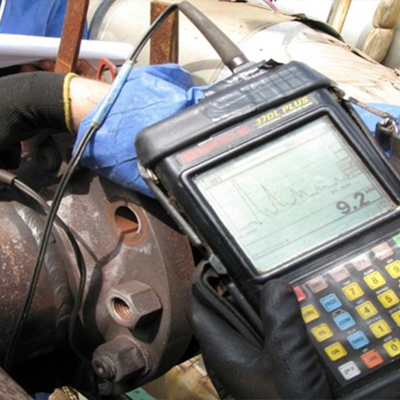
Ultrasonic Testing (UT) is based on the principle of sound waves. When sound is transmitted via a medium, it is reflected back in the form of an echo. In this inspection test method, high frequency sound energy is used to conduct examinations and make measurements. The sound energy is introduced via a transducer and propagates through the materials in the form of waves. When there is a discontinuity in the wave path, part of the energy will be reflected back from the flaw surface. The reflected wave signal is transformed into an electrical signal by the transducer, it is displayed by the monitor and read in variety of ways.
- Who should attend this training?
Ultrasonic Testing Level 1 and Level 2 courses are designed for:
-
- Secondary School Certificate Holder
- NDT trainee
- Asset/ Facility Engineer
- Quality Control/Quality Assurance Personnel
- Training Outcomes
After completion of the course, trainee will be able to:
-
- gain insight to the principles of Ultrasonic Testing
- appropriately apply method based on the understanding of principles of Ultrasonic Testing.
- Ultrasonic Testing Benefits
Some of the training benefits of undertaking Ultrasonic Testing Training as an NDT tool includes:
- Both surface and subsurface defects can be detected with the use of ultrasonic testing method. At the end of this course the candidate will understand how to perform inspection of samples for Ultrasonic Testing.
- Applications vary in complexity from very small, hand-held manual units to very large, sophisticated automated systems, hence, this method is used to inspect a variety of product forms including castings, forgings, and weldments. The structural steel, automotive, petrochemical, power generation, and aerospace industries are a few examples that utilises ultrasonic inspection.
- With the knowledge of Ultrasonic testing, you can easily detect flaws, calculate dimensional measurements and material characterization of industrial assets.
- Course Outline for Ultrasonic Testing Level 1
The course will cover the following areas:
-
- Basic principles on Ultrasonic Testing.
- Inspection and measurement of samples.
- Familiar with the scope and limitation of the method
- Introduction to ASTM and ASME standards and specifications.
- Training Methodology:
At OCTOPROCURE, our UT Level I Training is delivered via theoretical and practical classes using hands-on equipment/tools.
- Examination/Certification:
At the end of the course, candidate will be appearing for PCN/ASNT UT Level I exam. Each candidate will be a certified ASNT UT Level I upon the successful completion of the exam.
- Course Outline
Course Outline for Ultrasonic Testing Level 2
This Non-Destructive Testing (NDT) course for professionals, emphasises specific testing procedures and variables affecting test results. Students perform instrument checks, weld inspections and immersion testing for Ultrasonic Level II examination. Topics covered include:
-
- review of Level 1 material
- Advanced Theory: Applied Ultrasonic Techniques (Shear Wave Inspection, Calculating water path, Distance Amplitude Correction (DAC), sizing techniques for flaws, evaluation of flaws for type of defect, Instrument Calibrations review ASTM-E317, Codes and Specification.
- Examination/Certification:
At the end of the course, candidate will be appearing for PCN/ASNT UT Level II exam. Each candidate will be a certified PCN/ASNT UT Level II upon the successful completion of the exam
- Pre required Course:
Training in UT Level I is required sequel to training in UT Level II
- Course Details
- Course Duration for Level 1: 3 days
- Course Duration for Level 1 and 2: 5days
- Course Location: To be announced
- Course Date: To be announced
- Language: English
- Terms and Conditions
General Terms and Conditions apply.
Magnetic Particle Inspection (MP)

Magnetic Particle Inspection (MPI) is used to detect the presence of surface breakings/ discontinuities (cracks) in the part under inspection. It is one of the best NDTs used for the inspection of Ferromagnetic materials. This is because Ferromagnetic materials develop strong internal magnetic force when electric current is passed through them. Electric current may be introduced into the test material in different ways; it may be introduced directly by passing electric current through the use of yoke that is connected parallel to the test material and produces magnetic field perpendicular to the current flow or indirectly by wrapping the test material in encircling coils or rods. During the course of this test, suspension of magnetic particles are generously applied to the surface of the test material. When there is defect on the surface or near surface of the test material, the internal magnetic field is forced outside of the material and produces what is called flux leakage. This leakage has strong affinity for the magnetic particles, the particles run off and are attracted and clustered toward the leakage site(s) and the defect(s) are clearly visible under UV light. This method is used to discover discontinuities such as surface flaws/ near surface flaws in Ferromagnetic materials.
- Who should attend this training?
Magnetic Particle Inspection Training, Level 1 and Level 2 courses are designed for:
-
- Secondary School Certificate Holder
- NDT trainee
- Asset/ Facility Engineer
- Asset/ Facility Inspector
- Quality Control/Quality Assurance Personnel
- Training Outcomes
After completion of the course, trainee will be able to:
-
- gain insight to the principles of Magnetic Particle Inspection
- appropriately apply method based on the understanding of principles of Magnetic Particle Inspection.
- Magnetic Particle Inspection Benefits
Some of the training benefits of undertaking Magnetic Inspection Training as an NDT tool includes:
-
- Ability to detect both surface and near sub-surface defects; these are the most serious types of defects as they concentrate stresses
- Ability to inspect parts with irregular shapes easily.
- Flaws are easily detected even for test objects with irregular and complex shape.
- Fast method of inspection and indications are visible directly on the specimen surface.
- Considered low cost compared to many other NDT methods.
- Course Outline for Magnetic Particle Inspection: Level 1 and 2
Both levels I and II classes will be combined and material content shall cover the following sub headings:
-
- Introduction
- History of Magnetic Particles Inspection
- Basic Principles of Magnets and Magnetic Fields
- Materials Associated with Magnetic Fields
- Magnetic Field Direction and Discontinuity Detection
- Magnetization and Electric Currents
- Basic Steps of Magnetic Particle Inspection
- Selecting the proper magnetization method
- Inspection Materials
- Wet and dry methods
- Following performance checks
- Electromagnetic spectrum and black lights
- Demagnetization
- Equipment Types
- Following Written Procedures
- Training Methodology:
At OCTOPROCURE, our MPI Levels I & II Trainings are delivered via theoretical and practical classes using hands-on equipment/tools.
- Examination/Certification:
At the end of the course, candidate will be appearing for PCN/ASNT Levels I & II exams. Each candidate will be a certified PCN/ASNT MPI Levels I & II upon the successful completion of the exam.
- Pre required Course:
MPI Level I training is required sequel to Level II MPI training.
- Course Details
- Course Duration for Level 1 and 2: 3days
- Course Location: To be announced
- Course Date: To be announced
- Course Language: English
- Terms and Conditions
Radiography Testing (RT)
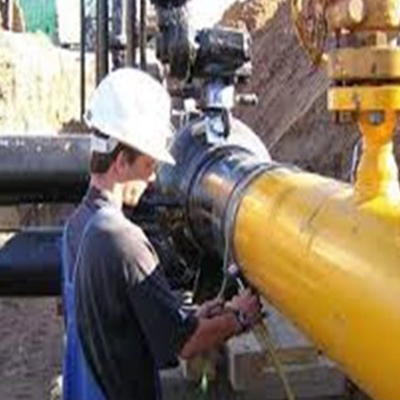 This method consists of radiographic exposure of the sample to be tested using radiographic film being placed under the sample. The radiation passes through the sample, and exposes the film. Discontinuities in the sample affect the exposure of the film. Most materials can be tested by Radiographic inspection, e.g. welds, castings, composites etc. Radiographic testing provides a permanent record and provides a high sensitivity of testing.
This method consists of radiographic exposure of the sample to be tested using radiographic film being placed under the sample. The radiation passes through the sample, and exposes the film. Discontinuities in the sample affect the exposure of the film. Most materials can be tested by Radiographic inspection, e.g. welds, castings, composites etc. Radiographic testing provides a permanent record and provides a high sensitivity of testing.
- Who should attend this training?
Radiographic Testing Level 1 and Level 2 courses are designed for:
-
- Secondary School Certificate Holder
- NDT trainee
- Asset/ Facility Engineer
- Quality Control/Quality Assurance Personnel
- Training Outcomes
After completion of the course, trainee will be able to:
-
- gain insight to the principles of Radiographic Testing
- appropriately apply method based on the understanding of principles of Radiographic Testing.
- Radiographic Testing Benefits
Some of the training benefits of undertaking Radiographic Testing as an NDT tool includes:
-
- Can inspect assembled components
- Minimum surface preparation required
- Detects both surface and subsurface defects
- Provides a permanent record of the inspection
- Verify internal flaws on complex structures
- Isolate and inspect internal components
- Automatically detect and measure internal flaws
- Measure dimensions and angles within the sample without sectioning
- Sensitive to changes in thickness, corrosion, flaws and material density changes
- Course Outline for Radiographic Testing Level 1
The course will cover the following areas:
-
- Nuclear Physics-Interaction of Radiation with Matter
- Shielding, Radiation Detectors, Biological Effects
- Radiation Protection, Basic Rules & Techniques
- Sources of Radiation and their characteristics
- Film Radiography
- Film Processing
- Inspection Techniques and Procedures
- Sensitivity & Definition, I.Q.Is, Other Accessories
- Types of Discontinuities
- Training Methodology:
At OCTOPROCURE, our RT Level I Training is delivered via theoretical and practical classes using hands-on equipment/tools.
- Examination/Certification:
At the end of the course, candidate will be appearing for PCN/ASNT RT Level I exam. Each candidate will be a certified PCN/ASNT RT Level I upon the successful completion of the exam.
- Course Outline for Radiographic Testing Level 2
The course will cover the following areas:
-
- Review of Level-I course
- Non-conventional Radiography
- Techniques in radiography
- Codes, standards and Procedures
- Acceptance Standards
- Manufacturing processes and discontinuities
- Interpretation of Radiographs
- Training Methodology for RT Level 2
At OCTOPROCURE, our RT Level II Training is delivered via theoretical and practical classes using hands-on equipment/tools.
- Examination/Certification for RT Level 2
At the end of the course, candidate will be appearing for PCN/ASNT RT Level 2 exam. Each candidate will be a certified PCN/ASNT RT Level I upon the successful completion of the exam.
- Course Details
- Course Duration for Level 1: 3days
- Course Duration for Level 1 and 2: 5days
- Course Location: To be announced
- Course Date: To be announced
- Language: English
- Terms and Conditions
General Terms and Conditions apply.
Radiography Interpretation (RI)
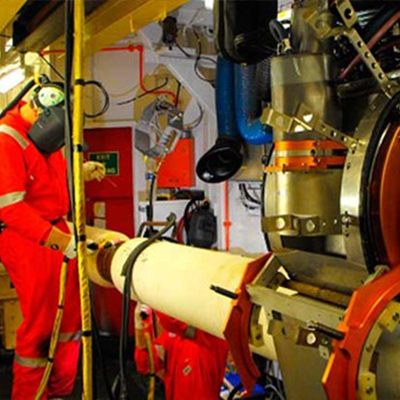
The course provides students with sufficient theoretical and practical tuition to enable them to interpret radiographs against applicable codes and standards. This is on the basis of knowledge of the radiographic principles involved, process technology and the appearance of the images of likely discontinuities, and the relevant contractual requirements. It provides a thorough foundation for technicians, inspectors, and engineers who might be required to interpret radiographs.
This training satisfies the formal training requirements of ASNT Recommended Practice SNT-TC-1A, BS EN 4179 and NAS-410 and meets the requirement of PCN for the General and Aerospace industry sectors. It covers X and Gamma radiographic interpretation of light and dense metal castings.
- Who should attend this training?
Radiographic Interpretation Level 1 and Level 2 courses are designed for:
-
- Secondary School Certificate Holder
- NDT trainee
- Level I Radiographer progressing to Level II qualification.
- Asset/ Facility Engineer
- Asset/ Facility Inspector
- Quality Control/Quality Assurance Personnel
- Training Outcomes
After completion of the course, trainee will be able to:
-
- gain insight to the principles of Radiographic Interpretation
- appropriately apply method based on the understanding of principles of Radiographic Interpretation.
- Radiographic Interpretation Training Benefits
Some of the training benefits of undertaking Radiographic Interpretation as an NDT tool includes:
-
- Understand the basic principles of the radiographic inspection procedure
- Understand the radiographic film processing procedures
- Recognise limitations in exposure quality
- Understand potential causes of processing artefacts
- Assess radiographic quality
- Understand viewing condition requirements
- Interpret radiographic codes and specifications
- Write reports based on code requirements
- Understand origins of defects
- Course Outline for Radiographic Interpretation
The course will cover the following areas:
-
- Basic principles of X and Gamma Radiography.
- Safety, Selection of films, screens, cassettes, and film holders
- Density and contrast.
- Radiation quality and the effects of scatter,
- Image quality and the use of IQI’s; Measurement of sensitivity, Choice of exposure techniques.
- Processing and process control, Artefacts and processing faults.
- The radiographic workroom and viewing conditions, Evaluation of radiographic images, Sentencing of radiographs against applicable codes and standards
- Report writing
- Training Methodology:
At OCTOPROCURE, our RI Training is delivered via theoretical and practical classes using hands-on equipment/tools.
- Examination/Certification:
At the end of the course, candidate will be appearing for PCN/ASNT RI exam. Each candidate will be a certified PCN/ASNT RI upon the successful completion of the exam.
- Pre required Course:
Knowledge of Level 1 Radiographic Testing.
- Course Details
- Course Duration for Level 1: 3days
- Course Duration for Level 1 and 2: 5days
- Course Location: To be announced
- Course Date: To be announced
- Language: English
- Terms and Conditions
General Terms and Conditions apply.
Eddy Current Testing
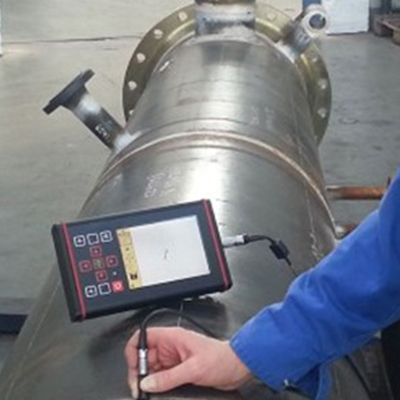
Eddy Current Testing (ET) is one of several NDT methods with its principal based on electromagnetism for conducting examinations. Eddy current testing equipment performs three basic functions: generating, receiving, and displaying. The generating portion of the unit provides an alternating current to the test coil creating eddy currents through a process called electromagnetic induction. The receiving section measures impedance and processes the signal from the test coil to the required form and amplitude for display. Instrument outputs or displays consist of a variety of visual, audible, storage, or transfer techniques utilizing meters, video displays, chart recorders, alarms, magnetic tape, computers, and electrical or electronic relays.
- Who should attend this training?
Eddy Current Testing Level 1 and Level 2 courses are designed for:
-
- Secondary School Certificate Holder
- NDT trainee
- Asset/ Facility Engineer
- Quality Control/Quality Assurance Personnel
- Training Outcomes
After completion of the course, trainee will be able to:
-
- gain insight to the principles of Eddy Current Testing
- with the understanding of principles of Eddy Current Testing , will be able to appropriately apply method when required.
- Eddy Current Testing Benefits
Some of the training benefits of undertaking Eddy Current Testing Training as an NDT tool includes but not limited to:
-
- Acquisition of variety of inspections and measurements methods because Eddy Current Testing is sensitive to small surface cracks, pits, subsurface cracks, corrosion on inner surfaces, and other flaws and is therefore used to inspect parts of complex shapes and sizes.
- This NDT method is easy to comprehend and apply, because the results from ET are immediate due to the sensitivity of this NDT method.
- Course Outline for Eddy Current Level 1
The course will cover the following areas:
- BASIC THEORY AND APPLICATION OF EDDY CURRENT LEVEL I
Basic Theory I:
-
- Brief History of Testing
- Basic Principles of Testing
- Generation of Eddy Currents by means of an AC field
- Effect of fields created by Eddy Currents
- Effect of change of impedance on instrumentation
- Terminology and units
- Principles of magnetisation
- Magnetisation
- electromagnetism theory
- Flux leakage theory and principle
- Readout Mechanism
- Types of Eddy Current Sensing Elements
- Types of Flux Leakage Sensing Elements
- Safety as applicable to Eddy Current Testing and Electrical Safety
- INTRODUCTION TO EDDY CURRENT: BASIC PRINCIPLES AND APPLICATION
- Application of the Method and use of Codes, Specifications and Procedures, applicable to the Oil and Gas industrial facilities, including the relevant control checks.
- Training Methodology:
At OCTOPROCURE, our ET Level I Training is delivered via theoretical and practical classes using hands-on equipment/tools.
- Examination/Certification:
At the end of the course, candidate will be appearing for PCN/ASNT Level I exam. Each candidate will be a certified NDT ET Level I upon the successful completion of the exam.
- Course Outline for Eddy Current Level 2
The course will cover the following areas:
- BASIC THEORY AND APPLICATION OF EDDY CURRENT LEVEL II
Basic Theory II:
-
- Review of Electromagnetic Theory
- Factors that affect Coil Impedance
- Factors that affect Flux Leakage Fields
- Signal-to-Noise Ratio
- Selection of Test Frequency
- Selection of Method of Magnetisation for Flux
- Leakage Testing
- Interpretation of Radiographs
- Coupling
- Field Strength and Its Selection
- Field Orientation for Flux Leakage Testing
- Instrument Design Consideration
- Safety as applicable to Eddy Current Testing and Electrical Safety
- Leakage Testing
- Coupling
- Field Strength and Its Selection
- Field Orientation for Flux Leakage Testing
- Instrument Design Consideration
- Safety as applicable to Eddy Current Testing and Electrical Safety
- BASIC PRINCIPLES AND APPLICATION OF EDDY CURRENT LEVEL II
- Application of ET to the Specific requirements of the Company, in particular making reference to those Codes, Specifications and Procedures used by the Company, including the relevant control checks.
- Training Methodology for Eddy Current Level 2
At OCTOPROCURE, our ET Level II Training is delivered via theoretical and practical classes using hands-on equipment/tools.
- Examination/Certification for Eddy Curent Level 2
At the end of the course, candidate will be appearing for PCN/ASNT Level II exam. Each candidate will be a certified ASNT ET Level II upon the successful completion of the exam.
- Pre required Course:
Training in Eddy Current Testing Level I is required.
- Course Details
- Course Duration for Level 1: 3 days
- Course Duration for Level 1 and 2: 5 days
- Course Location: To be announced
- Course Date: To be announced
- Language: English
- Terms and Conditions
General Terms and Conditions apply.
Liquid Penetrant Inspection/ Testing (LPI or PT)
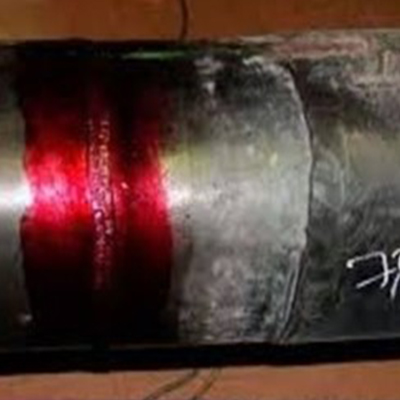
Liquid/ Dye Penetrant Inspection can be used in cases where material to be tested is not ferromagnetic. LPI basically involve four (4) steps which are:
-
- Pre-clean
- Penetrant spray
- Clean
- Developer spray
The time allowed for the penetrant liquid to set into the test material is called DWELL TIME
This method is used to detect surface flaws only.
- Who should attend this training?
This course is designed for:
-
- Secondary School Certificate Holder
- NDT trainee
- Asset/ Facility Engineer
- Asset/ Facility Inspector
- Quality Control/Quality Assurance Personnel
- Training Outcomes
After completion of the course, trainee will be able to:
-
- gain insight to the principles of Liquid Penetrant Testing
- appropriately apply method based on the understanding of principles of Liquid Penetrant Testing.
- Liquid Penetrant Training Benefits
Some of the training benefits of undertaking of Liquid Penetrant Testing as an NDT tool includes:
-
- the method has high sensitivity to small surface discontinuities.
- the method has few material limitations, i.e. metallic and non-metallic, magnetic and nonmagnetic, and conductive and nonconductive materials may be inspected.
- Large areas and large volumes of parts/materials can be inspected rapidly and at low cost.
- parts with complex geometric shapes are routinely inspected.
- indications are produced directly on the surface of the part and constitute a visual representation of the flaw.
- aerosol spray cans make penetrant materials very portable.
- Course Outline for Liquid Penetrant Testing
At the end of this course, the candidate will understand how to perform inspection of samples for liquid penetrant test. The course will cover:-
-
- Basic principles on liquid penetrant testing.
- Inspection and measurement of samples.
- Familiar with the scope and limitation of the method
- Introduction to ASTM and ASME standards and specifications.
- Training Methodology:
At OCTOPROCURE, our LPI Training is delivered via theoretical and practical classes using hands-on equipment/tools.
- Examination/Certification:
At the end of the course, candidate will be appearing for PCN/ASNT LPI exam. Each candidate will be a certified PCN/ASNT LPI upon the successful completion of the exam.
- Course Details
- Course Duration for Level 1: 3days
- Course Duration for Level 1 and 2: 5days
- Course Location: To be announced
- Course Date: To be announced
- Language: English
- Terms and Conditions
General Terms and Conditions apply.
